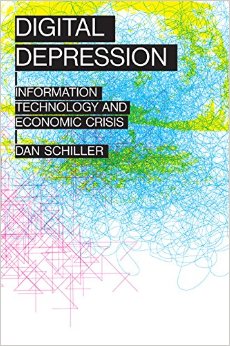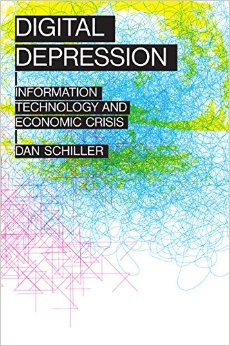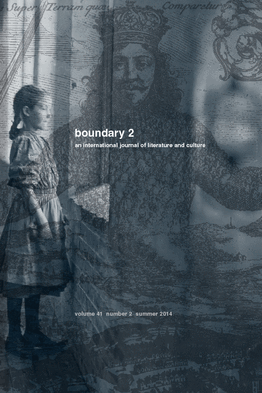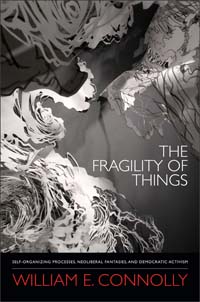 a review of William E. Connolly, The Fragility of Things: Self-Organizing Processes, Neoliberal Fantasies, and Democratic Activism (Duke University Press, 2013)
a review of William E. Connolly, The Fragility of Things: Self-Organizing Processes, Neoliberal Fantasies, and Democratic Activism (Duke University Press, 2013)
by Zachary Loeb
~
Mountains and rivers, skyscrapers and dams – the world is filled with objects and structures that appear sturdy. Glancing upwards at a skyscraper, or mountain, a person may know that these obelisks will not remain eternally unchanged, but in the moment of the glance we maintain a certain casual confidence that they are not about to crumble suddenly. Yet skyscrapers collapse, mountains erode, rivers run dry or change course, and dams crack under the pressure of the waters they hold. Even equipped with this knowledge it is still tempting to view such structures as enduringly solid. Perhaps the residents of Lisbon, in November of 1755, had a similar faith in the sturdiness of the city they had built, a faith that was shattered in an earthquake – and aftershocks – that demonstrated all too terribly the fragility at the core of all physical things.
The Lisbon earthquake, along with its cultural reverberations, provides the point of entry for William E. Connolly’s discussion of neoliberalism, ecology, activism, and the deceptive solidness of the world in his book The Fragility of Things. Beyond its relevance as an example of the natural tremors that can reduce the built world into rubble, the Lisbon earthquake provides Connolly (the Krieger-Eisenhower Professor of Political Science at the Johns Hopkins University), a vantage point from which to mark out and critique a Panglossian worldview he sees as prominent in contemporary society. No doubt, were Voltaire’s Pangloss alive today, he could find ready employment as an apologist for neoliberalism (perhaps as one of Silicon Valley’s evangelists). Like Panglossian philosophy, neoliberalism “acknowledges many evils and treats them as necessary effects” (6).
Though the world has changed significantly since the mid-18th century during which Voltaire wrote, humanity remains assaulted by events that demonstrate the world’s fragility. Connolly councils against the withdrawal to which the protagonists of Candide finally consign themselves while taking up the famous trope Voltaire develops for that withdrawal; today we “cultivate our gardens” in a world in which the future of all gardens is uncertain. Under the specter of climate catastrophe, “to cultivate our gardens today means to engage the multiform relations late capitalism bears to the entire planet” (6). Connolly argues for an “ethic of cultivation” that can show “both how fragile the ethical life is and how important it is to cultivate it” (17). “Cultivation,” as developed in The Fragility of Things, stands in opposition to withdrawal. Instead it entails serious, ethically guided, activist engagement with the world – for us to recognize the fragility of natural, and human-made, systems (Connolly uses the term “force-fields”) and to act to protect this “fragility” instead of celebrating neoliberal risks that render the already precarious all the more tenuous.
Connolly argues that when natural disasters strike, and often in their wake set off rippling cascades of additional catastrophes, they exemplify the “spontaneous order” so beloved by neoliberal economics. Under neoliberalism, the market is treated as though it embodies a uniquely omniscient, self-organizing and self-guiding principle. Yet the economic system is not the only one that can be described this way: “open systems periodically interact in ways that support, amplify, or destabilize one another” (25). Even in the so-called Anthropocene era the ecosystem, much to humanity’s chagrin, can still demonstrate creative and unpredictable potentialities. Nevertheless, the ideological core of neoliberalism relies upon celebrating the market’s self-organizing capabilities whilst ignoring the similar capabilities of governments, the public sphere, or the natural world. The ascendancy of neoliberalism runs parallel with an increase in fragility as economic inequality widens and as neoliberalism treats the ecosystem as just another profit source. Fragility is everywhere today, and though the cracks are becoming increasingly visible, it is still given – in Connolly’s estimation – less attention than is its due, even in “radical theory.” On this issue Connolly wonders if perhaps “radical theorists,” and conceivably radical activists, “fear that coming to terms with fragility would undercut the political militancy needed to respond to it?” (32). Yet Connolly sees no choice but to “respond,” envisioning a revitalized Left that can take action with a mixture of advocacy for immediate reforms while simultaneously building towards systemic solutions.
Critically engaging with the thought of core neoliberal thinker and “spontaneous order” advocate Friedrich Hayek, Connolly demonstrates the way in which neoliberal ideology has been inculcated throughout society, even and especially amongst those whose lives have been made more fragile by neoliberalism: “a neoliberal economy cannot sustain itself unless it is supported by a self-conscious ideology internalized by most participants that celebrates the virtues of market individualism, market autonomy and a minimal state” (58). An army of Panglossian commentators must be deployed to remind the wary watchers that everything is for the best. That a high level of state intervention may be required to bolster and disseminate this ideology, and prop up neoliberalism, is wholly justified in a system that recognizes only neoliberalism as a source for creative self-organizing processes, indeed “sometimes you get the impression that ‘entrepreneurs’ are the sole paradigms of creativity in the Hayekian world” (66). Resisting neoliberalism, for Connolly, requires remembering the sources of creativity that occur outside of a market context and seeing how these other systems demonstrate self-organizing capacities.
Within neoliberalism the market is treated as the ethical good, but Connolly works to counter this with “an ethic of cultivation” which works not only against neoliberalism but against certain elements of Kant’s philosophy. In Connolly’s estimation Kantian ethics provide some of the ideological shoring up for neoliberalism, as at times “Kant both prefigures some existential demands unconsciously folded into contemporary neoliberalism and reveals how precarious they in fact are. For he makes them postulates” (117). Connolly sees a certain similarity between the social conditioning that Kant saw as necessary for preparing the young to “obey moral law” and the ideological conditioning that trains people for life under neoliberalism – what is shared is a process by which a self-organizing system must counter people’s own self-organizing potential by organizing their reactions. Furthermore “the intensity of cultural desires to invest hopes in the images of self-regulating interest within markets and/or divine providence wards off acknowledgment of the fragility of things” (118). Connolly’s “ethic of cultivation” appears as a corrective to this ethic of inculcation – it features “an element of tragic possibility within it” (133) which is the essential confrontation with the “fragility” that may act as a catalyst for a new radical activism.
In the face of impending doom neoliberalism will once more have an opportunity to demonstrate its creativity even as this very creativity will have reverberations that will potentially unleash further disasters. Facing the possible catastrophe means that “we may need to recraft the long debate between secular, linear, and deterministic images of the world on the one hand and divinely touched, voluntarist, providential, and/or punitive images on the other” (149). Creativity, and the potential for creativity, is once more essential – as it is the creativity in multiple self-organizing systems that has created the world, for better or worse, around us today. Bringing his earlier discussions of Kant into conversation with the thought of Whitehead and Nietzsche, Connolly further considers the place of creative processes in shaping and reshaping the world. Nietzsche, in particular, provides Connolly with a way to emphasize the dispersion of creativity by removing the province of creativity from the control of God to treat it as something naturally recurring across various “force-fields.” A different demand thus takes shape wherein “we need to slow down and divert human intrusions into various planetary force fields, even as we speed up efforts to reconstitute the identities, spiritualities, consumption practices, market faiths, and state policies entangled with them” (172) though neoliberalism knows but one speed: faster.
An odd dissonance occurs at present wherein people are confronted with the seeming triumph of neoliberal capitalism (one can hear the echoes of “there is no alternative”) and the warnings pointing to the fragility of things. In this context, for Connolly, withdrawal is irresponsible, it would be to “cultivate a garden” when what is needed is an “ethic of cultivation.” Neoliberal capitalism has trained people to accept the strictures of its ideology, but now is a time when different roles are needed; it is a time to become “role experimentalists” (187). Such experiments may take a variety of forms that run the gamut from “reformist” to “revolutionary” and back again, but the process of such experimentation can break the training of neoliberalism and demonstrate other ways of living, interacting, being and having. Connolly does not put forth a simple solution for the challenges facing humanity, instead he emphasizes how recognizing the “fragility of things” allows for people to come to terms with these challenges. After all, it may be that neoliberalism only appears so solid because we have forgotten that it is not actually a naturally occurring mountain but a human built pyramid – and our backs are its foundation.
* * *
In the “First Interlude,” on page 45, Connolly poses a question that haunts the remainder of The Fragility of Things, the question – asked in the midst of a brief discussion of the 2011 Lars von Trier film Melancholia – is, “How do you prepare for the end of the world?” It is the sort of disarming and discomforting question that in its cold honesty forces readers to face a conclusion they may not want to consider. It is a question that evokes the deceptively simple acronym FRED (Facing the Reality of Extinction and Doom). And yet there is something refreshing in the question – many have heard the recommendations about what must be done to halt climate catastrophe, but how many believe these steps will be taken? Indeed, even though Connolly claims “we need to slow down” there are also those who, to the contrary, insist that what is needed is even greater acceleration. Granted, Connolly does not pose this question on the first page of his book, and had he done so The Fragility of Things could have easily appeared as a dismissible dirge. Wisely, Connolly recognizes that “a therapist, a priest, or a philosopher might stutter over such questions. Even Pangloss might hesitate” (45); one of the core strengths of The Fragility of Things is that it does not “stutter over such questions” but realizes that such questions require an honest reckoning. Which includes being willing to ask “How do you prepare for the end of the world?”
William Connolly’s The Fragility of Things is both ethically and intellectually rigorous, demanding readers perceive the “fragility” of the world around them even as it lays out the ways in which the world around them derives its stability from making that very fragility invisible. Though it may seem that there are relatively simple concerns at the core of The Fragility of Things Connolly never succumbs to simplistic argumentation – preferring the fine-toothed complexity that allows moments of fragility to be fully understood. The tone and style of The Fragility of Things feels as though it assumes its readership will consist primarily of academics, activists, and those who see themselves as both. It is a book that wastes no time trying to convince its reader that “climate change is real” or “neoliberalism is making things worse,” and the book is more easily understood if a reader begins with at least a basic acquaintance with the thought of Hayek, Kant, Whitehead, and Nietzsche. Even if not every reader of The Fragility of Things has dwelled for hours upon the question of “How do you prepare for the end of the world?” the book seems to expect that this question lurks somewhere in the subconscious of the reader.
Amidst Connolly’s discussions of ethics, fragility and neoliberalism, he devotes much of the book to arguing for the need for a revitalized, active, and committed Left – one that would conceivably do more than hold large marches and then disappear. While Connolly cautions against “giving up” on electoral politics he does evince a distrust for US party politics; to the extent that Connolly appears to be a democrat it is a democrat with a lowercase d. Drawing inspiration from the wave of protests in and around 2011 Connolly expresses the need for a multi-issue, broadly supported, international (and internationalist) Left that can organize effectively to win small-scale local reforms while building the power to truly challenge the grip of neoliberalism. The goal, as Connolly envisions it, is to eventually “mobilize enough collective energy to launch a general strike simultaneously in several countries in the near future” even as Connolly remains cognizant of threats that “the emergence of a neofascist or mafia-type capitalism” can pose (39). Connolly’s focus on the, often slow, “traditional” activist strategies of organizing should not be overlooked, as his focus on mobilizing large numbers of people acts as a retort to a utopian belief that “technology will fix everything.” The “general strike” as the democratic response once electoral democracy has gone awry is a theme that Connolly concludes with as he calls for his readership to take part in helping to bring together “a set of interacting minorities in several countries for the time when we coalesce around a general strike launched in several states simultaneously” (195). Connolly emphasizes the types of localized activism and action that are also necessary, but “the general strike” is iconic as the way to challenge neoliberalism. In emphasizing the “the general strike” Connolly stakes out a position in which people have an obligation to actively challenge existing neoliberalism, waiting for capitalism to collapse due to its own contradictions (and trying to accelerate these contradictions) does not appear as a viable tactic.
All of which raises something of prickly question for The Fragility of Things: which element of the book strikes the reader as more outlandish, the question of how to prepare for the end of the world, or the prospect of a renewed Left launching “a general strike…in the near future”? This question is not asked idly or as provocation; and the goal here is in no way to traffic in Leftist apocalyptic romanticism. Yet experience in current activism and organizing does not necessarily imbue one with great confidence in the prospect of a city-wide general strike (in the US) to say nothing of an international one. Activists may be acutely aware of the creative potentials and challenges faced by repressed communities, precarious labor, the ecosystem, and so forth – but these same activists are aware of the solidity of militarized police forces, a reactionary culture industry, and neoliberal dominance. Current, committed, activists’ awareness of the challenges they face makes it seem rather odd that Connolly suggests that radical theorists have ignored “fragility.” Indeed many radical thinkers, or at least some (Grace Lee Boggs and Franco “Bifo” Berardi, to name just two) seem to have warned consistently of “fragility” – even if they do not always use that exact term. Nevertheless, here the challenge may not be the Sisyphean work of activism but the rather cynical answer many, non-activists, give to the question of “How does one prepare for the end of the world?” That answer? Download some new apps, binge watch a few shows, enjoy the sci-fi cool of the latest gadget, and otherwise eat, drink and be merry because we’ll invent something to solve tomorrow’s problems next week. Neoliberalism has trained people well.
That answer, however, is the type that Connolly seems to find untenable, and his apparent hope in The Fragility of Things is that most readers will also find this answer unacceptable. Thus Connolly’s “ethic of cultivation” returns and shows its value again. “Our lives are messages” (185) Connolly writes and thus the actions that an individual takes to defend “fragility” and oppose neoliberalism act as a demonstration to others that different ways of being are possible.
What The Fragility of Things makes clear is that an “ethic of cultivation” is not a one-off event but an ongoing process – cultivating a garden, after all, is something that takes time. Some gardens require years of cultivation before they start to bear fruit.
_____
Zachary Loeb is a writer, activist, librarian, and terrible accordion player. He earned his MSIS from the University of Texas at Austin, and is currently working towards an MA in the Media, Culture, and Communications department at NYU. His research areas include media refusal and resistance to technology, ethical implications of technology, infrastructure and e-waste, as well as the intersection of library science with the STS field. Using the moniker “The Luddbrarian,” Loeb writes at the blog Librarian Shipwreck. He is a frequent contributor to The b2 Review Digital Studies section.
Back to the essay
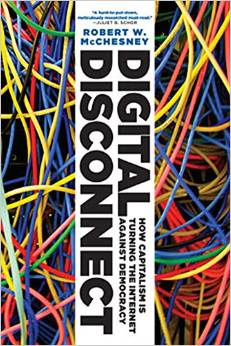 a review of Robert W. McChesney, Digital Disconnect: How Capitalism Is Turning the Internet Against Democracy (The New Press, 2014)
a review of Robert W. McChesney, Digital Disconnect: How Capitalism Is Turning the Internet Against Democracy (The New Press, 2014)
